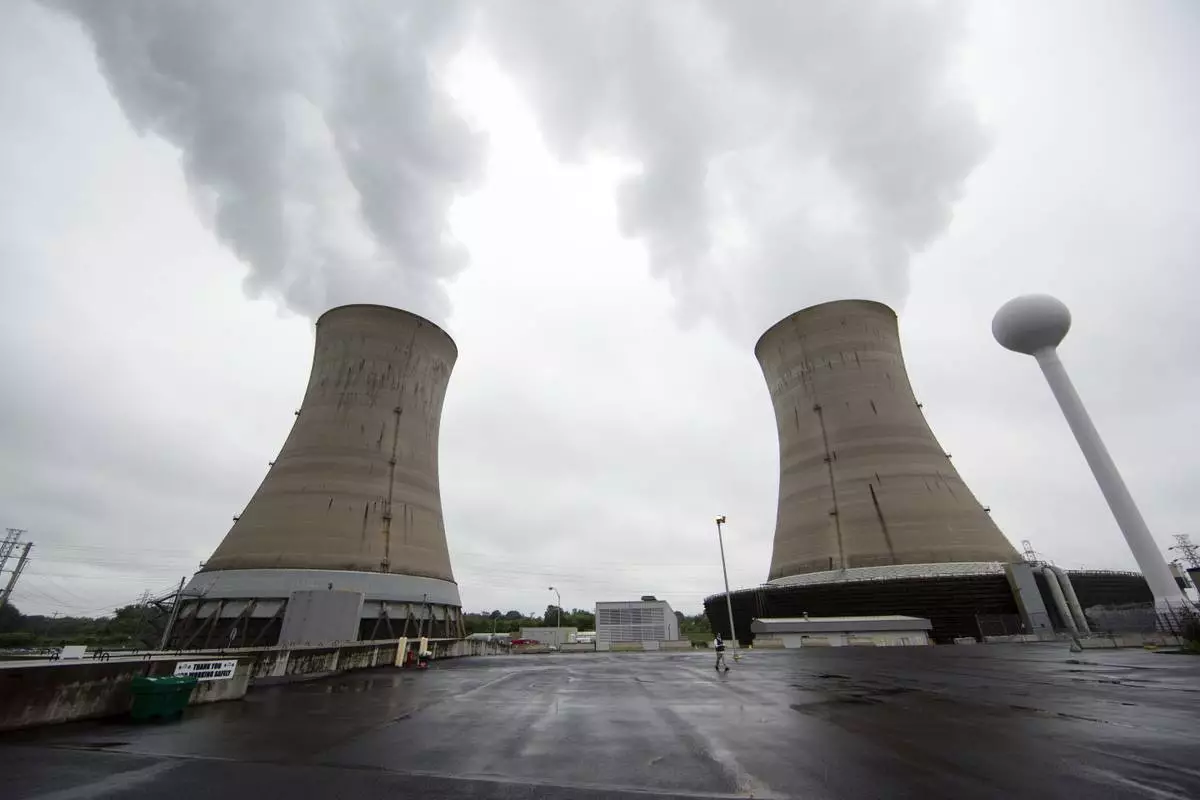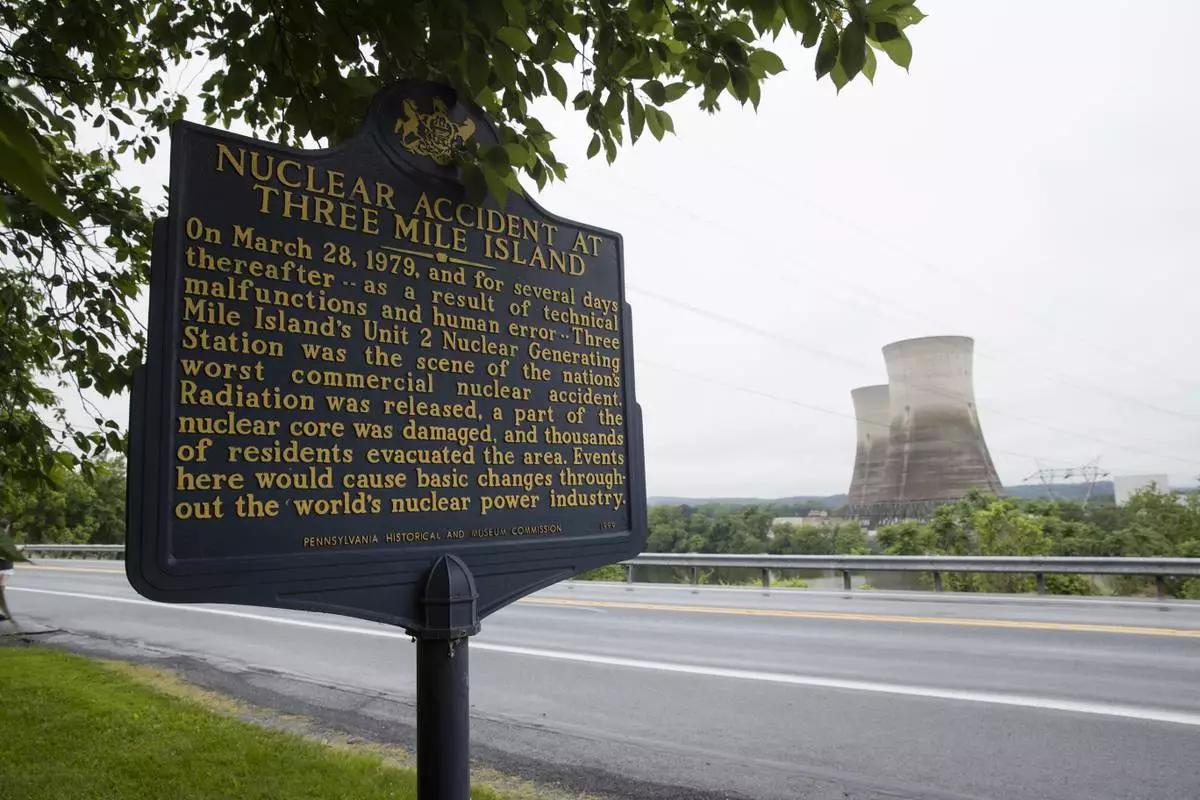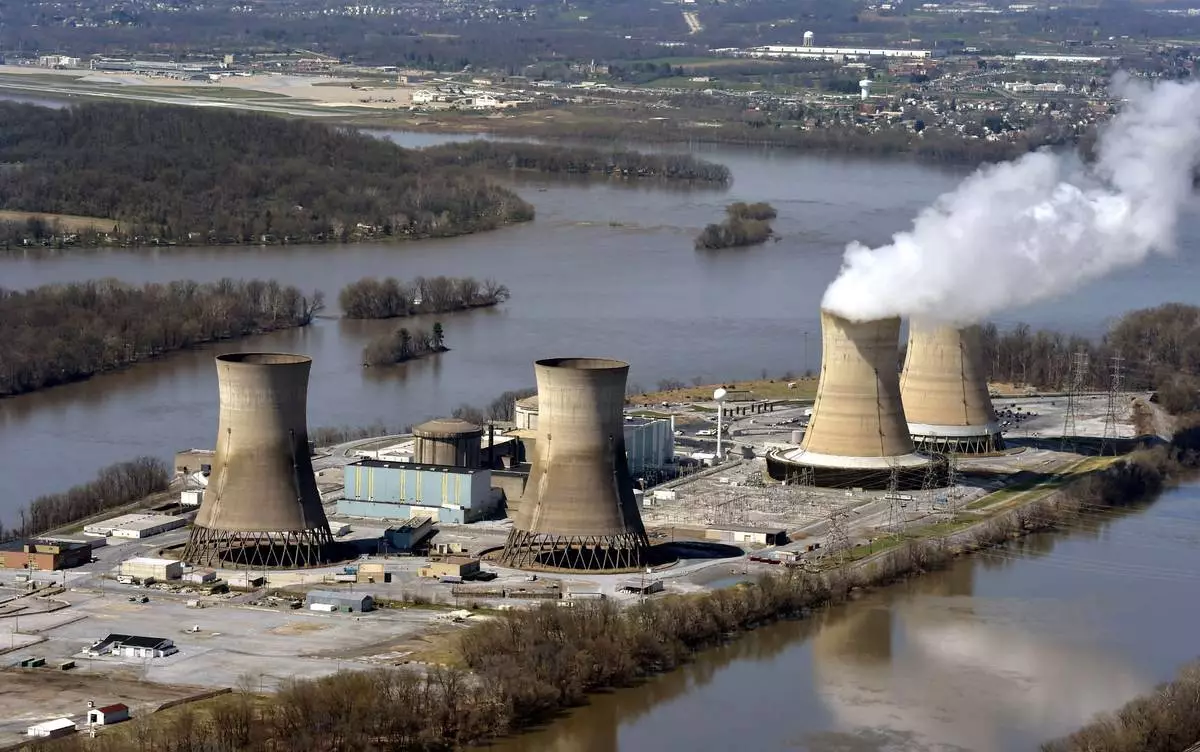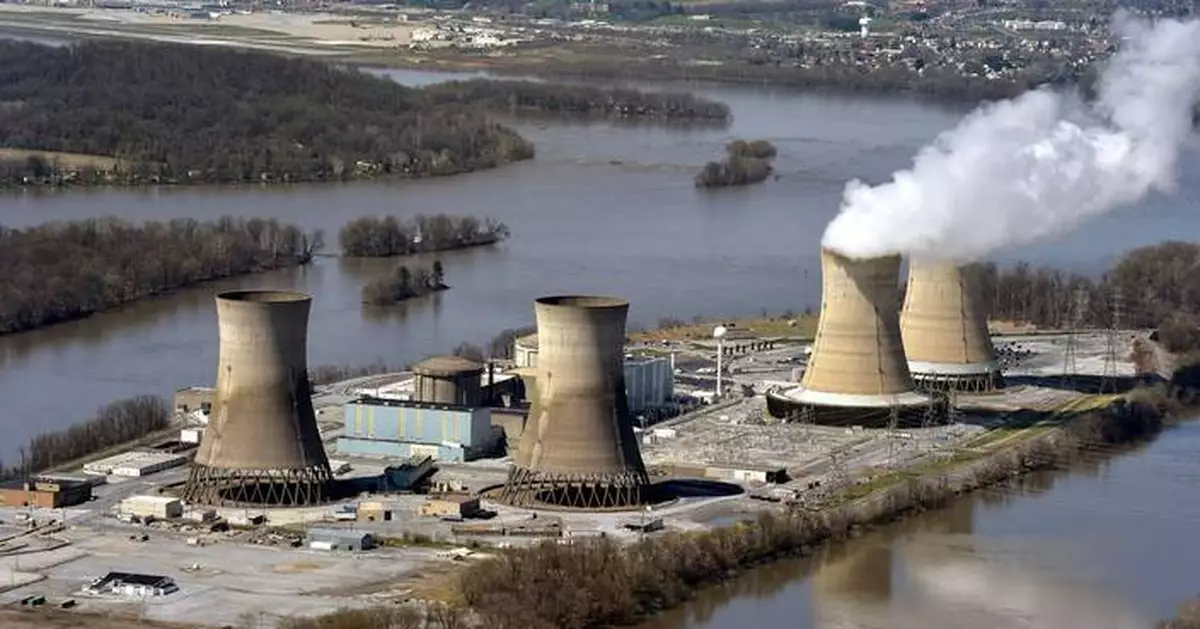HARRISBURG, Pa. (AP) — The owner of the shuttered Three Mile Island nuclear power plant said Friday that it plans to restart the reactor under a 20-year agreement that calls for tech giant Microsoft to buy the power to supply its data centers with carbon-free energy.
The announcement by Constellation Energy comes five years after its then-parent company Exelon shut down the plant, saying it was losing money and that Pennsylvania lawmakers had refused to subsidize it.
The plan to restart Three Mile Island's Unit 1 comes amid something of a renaissance for nuclear power, as policymakers are increasingly looking to it to bail out a fraying electric power supply, help avoid the worst effects of climate change and meet rising power demand driven by data centers.
The plant, on an island in the Susquehanna River just outside Harrisburg, was the site of the nation’s worst commercial nuclear power accident, in 1979. The accident destroyed one reactor, Unit 2, and left the plant with one functioning reactor, Unit 1.
Buying the power is designed to help Microsoft meet its commitment to be “carbon negative” by 2030.
Microsoft wouldn't say which of its data centers will be powered by the nuclear plant, but the mid-Atlantic electricity grid spans from Virginia, a data center hub for Microsoft and other tech giants, to Ohio, where Microsoft has plans for a new data center complex outside Columbus.
Constellation said it hopes to bring Unit 1 online in 2028. Restarting the reactor will require approval from the U.S. Nuclear Regulatory Commission, as well as permits from state and local agencies, Constellation said.
To restart Unit 1, Constellation will spend $1.6 billion to restore equipment including the turbine, generator, main power transformer and cooling and control systems. It is not currently seeking state or federal subsidies to help, it said.
Microsoft and Constellation didn’t release terms of their agreement.
Jacopo Buongiorno, a nuclear science and engineering professor and director of MIT's Center for Advanced Nuclear Energy Systems, said Microsoft will likely pay above market price for electricity that is both carbon-free and reliable.
Restarting the plant is realistic, but not easy, Buongiorno said.
“It all depends on what's the state of the components, the systems,” Buongiorno said.
The process will go fairly smoothly if they were maintained well while it was shut down, Buongiorno said. A Constellation spokesperson said the plant itself is in excellent condition.
The closest example of restarting a nuclear plant is underway in Michigan, Buongiorno said. There, the federal government has promised a $1.5 billion loan to restart the Palisades nuclear plant, shut down in 2022.
The business model of the Constellation-Microsoft agreement makes sense for both sides, Buongiorno said. Plus, it is cheaper to restart a nuclear power plant than build one from scratch, he said. Already intact are transmission lines, cooling towers, the control buildings and concrete containment structures, he said.
Constellation's announcement comes after a wave of coal-fired and nuclear power plants have shut down in the past decade as competition from cheap natural gas flooded power markets.
That has elicited warnings that the U.S. is facing an electric reliability crisis. Meanwhile, demand is fast-growing from data centers run by tech giants like Meta, Amazon, Microsoft and Google to provide cloud computing and digital services such as artificial intelligence systems.
In the U.S., growth in electricity demand is concentrated in states — primarily Virginia and Texas — that are seeing the rapid development of large-scale data centers, the U.S. Energy Information Administration said.
The data centers’ share of U.S. electricity use in the United States is around 4% currently, with some projections expecting that to double by 2030.
The Constellation-Microsoft agreement comes amid a push by the Biden administration, states and utilities to reconsider using nuclear power to try to limit plant-warming greenhouse gas emissions from the power sector.
Last year, Georgia Power began producing electricity from the first American nuclear reactor to be built in decades, after the accident at Three Mile Island froze interest in building new ones.
Before it was shut down in 2019, Three Mile Island's Unit 1 had a generating capacity of 837 megawatts, which is enough to power more than 800,000 homes, Constellation said.
The destroyed Unit 2 is sealed, and its twin cooling towers remain standing. Its core was shipped years ago to the U.S. Department of Energy’s Idaho National Laboratory. What is left inside the containment building remains highly radioactive and encased in concrete.
The late 2022 debut of OpenAI’s ChatGPT — built with help from Microsoft’s data centers — ignited worldwide demand for chatbots and other generative AI products that typically require large amounts of computing power to train and operate.
Google and Microsoft both acknowledged this year that AI’s electricity needs are making it harder for them to meet the ambitious climate targets they set before the AI boom.
“Microsoft, above and beyond their own products, are also providing the compute for OpenAI, which is growing and expanding very ambitiously,” said Sasha Luccioni, a researcher at AI company Hugging Face who has called attention to AI’s carbon footprint. “They have to scramble to get all the energy that they can in order to be able to fuel that growth.”
O'Brien reported from Providence, Rhode Island. Follow Marc Levy at https://x.com/timelywriter

FILE - This May 22, 2017 file photo, shows cooling towers at the Three Mile Island nuclear power plant in Middletown, Pa. (AP Photo/Matt Rourke, File)

FILE - Shown are the unit 2 cooling towers at the Three Mile Island nuclear power plant in Middletown, Pa., Monday, May 22, 2017. (AP Photo/Matt Rourke, File)

File-This April 18, 2018, file photo shows an aerial view of Three Mile Island, in Dauphin County, Pa. (Richard Hertzler/LNP/LancasterOnline via AP)














